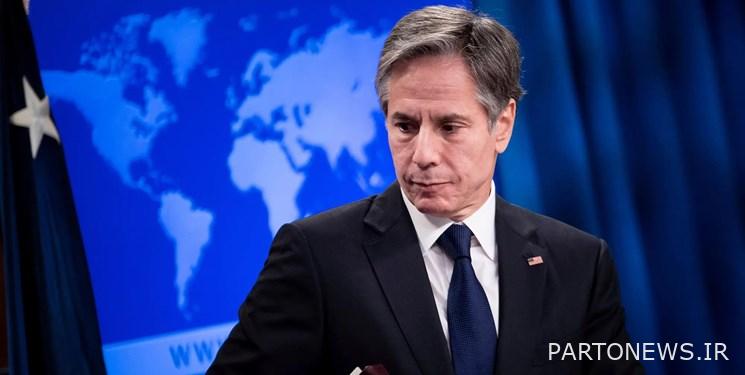Despite the adoption of an anti-Iranian resolution; Blinken: We are ready to return to Burjam

According to Fars News Agency’s International Group, US Secretary of State Anthony Blinken reacted to the action of the International Atomic Energy Agency Board of Governors in passing an anti-Iranian resolution.
“Yesterday we joined the overwhelming majority of the International Atomic Energy Agency (IAEA) Board of Governors in supporting the IAEA’s essential mission to monitor nuclear material and prevent nuclear proliferation,” the Blinken statement said. Iran must cooperate with the International Atomic Energy Agency and provide credible technical answers to IAEA questions. “This is the only way to remove safeguards from the council’s agenda.”
Blinken claims that the International Atomic Energy Agency’s anti-Iran resolution has nothing to do with the IAEA. “This resolution is at the heart of the International Atomic Energy Agency’s mandate and Iran’s commitments under the Non-Proliferation Treaty,” he said. [در کانون] “Comprehensive Joint Action Plan (CJAP).”
Although the Islamic Republic of Iran has stressed that the IAEA’s move to continue the UN Security Council negotiations is destructive, Blinken has claimed that the United States remains committed to returning to the UN Security Council.
“The United States remains committed to a reciprocal return to the UN Security Council,” he said. “We are ready to conclude the agreement on the basis of the agreements reached with our European allies in Vienna in recent months.”
Western countries, especially the United States, have in recent months, following the interruption of the Vienna talks, resorted to the usual practice of resorting to psychological and media operations to blame Iran and abdicate responsibility.
By linking the talks to the Ukraine war, they first claimed that Russia had obstructed the talks. After Russian Foreign Minister Sergei Lavrov made it clear during a visit by Iranian Foreign Minister Hossein Amir-Abdollahian that the issue of Moscow’s request for cooperation with Iran after the full implementation of the UN Security Council is not an obstacle to the continuation of talks, Western countries An Iranian issue was raised, claiming that Tehran’s request to remove the IRGC from the list of so-called terrorist organizations had stalled the talks.
Blinken claimed in a statement on Thursday that an agreement with Iran had been available since March. “Such an agreement has been available since March, but we can only conclude the negotiations and implement them if Iran abandons its additional demands on the UN Security Council,” he said.
The International Atomic Energy Agency (IAEA) Board of Governors yesterday (Wednesday) passed a resolution accusing Iran of not cooperating with the International Atomic Energy Agency.
The resolution was passed with 30 votes in favor, 2 against (Russia and China) and 3 abstentions (India, Libya and Pakistan).
Hours before the adoption of this resolution, the Atomic Energy Organization of Iran announced the cessation of the activities of a number of extra-staff cameras of the International Atomic Energy Agency in Iran.
A statement from the IAEA said, “The Islamic Republic of Iran has so far had extensive cooperation with the International Atomic Energy Agency (IAEA). In a way, it has considered it the duty of Iran. “For this reason, it was decided to cut off the operation of the OLEM Ghana surface line metering camera and the agency flowmeter from today, which has been ordered by the relevant authorities.”
Reacting to Iran’s action, the US Secretary of State stated: “Unfortunately, Iran’s initial response to the Council’s action was not to address the issue of non-cooperation and non-transparency that led to the Secretary-General’s negative report and concern to the Board of Governors. “Iran has threatened to increase nuclear tensions and further reduce transparency.”
He added: “Such actions would be detrimental and complicate our efforts to return to full implementation. The only result of such a course will be the escalation of the nuclear crisis and further economic and political isolation of Iran. “We continue to urge Iran to choose diplomacy and de-escalate tensions.”
End of message /
You can edit this post
Suggest this for the front page

